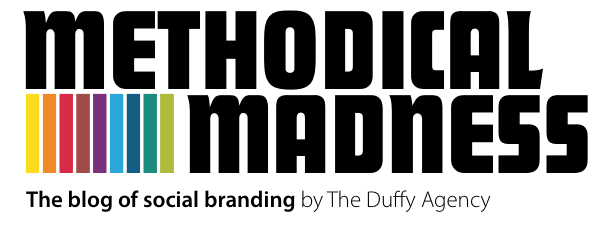According to Chris Anderson, Editor-in-Chief of Wired Magazine and author of The Long Tail, the future is free, or as Chris calls it “Freeconomics.” It’s no longer about charging for a service but giving the base away and charging for the upgrades and extras. In other words, “giveaway the abundance, sell the scarcity.”
 At the Media Evolution in Malmö, Sweden yesterday, Chris spent almost an hour giving us what amounts to basically an outline to his new book, “Free, or How I Stopped Worrying and Learned to Love $0.00.” While not groundbreaking, Chris gave an interesting lecture that had some comments that appeared to be a rude wake up for the panel that followed.
At the Media Evolution in Malmö, Sweden yesterday, Chris spent almost an hour giving us what amounts to basically an outline to his new book, “Free, or How I Stopped Worrying and Learned to Love $0.00.” While not groundbreaking, Chris gave an interesting lecture that had some comments that appeared to be a rude wake up for the panel that followed.
Today’s generation expects everything to be free. From games to music to movies, the expectation is it’s out there for the taking and you shouldn’t have to pay for it. That is in direct contrast to older generations where you expect to pay for everything. The balance falls in-between. You can see this happening with everything from video games to music sites. You give away the base service and then charge for the add-on or unique version. With Second Life, you get the basic online interaction but if you want house, that’s going to cost you. Spotify allows you to listen to free music all day, but if you want to avoid commercials, that’s going to require a credit card.
Chris has taken this model and applied it to his new book. You can get the mp3, pdf or any other online version for free, but it will cost you $24.95 to buy the hardback version. This is a great model for him because it is a quick and easy way to disseminate his ideas. His publisher thinks it is a horrible concept. Since they are in the market to sell books, just giving it away is not what they want to see.
Publishers of content (music, literature, movies, etc) are not prepared to handle the freeconomy. After Chris’ lecture, there was a panel filled with publishers and it was obvious they weren’t thrilled with Chris’ message. As more and more newspapers and magazines fail, it’s hard to compete with free online news and information. The solution is to build a following with free and then convert them to offline clients with good content. It’s not an easy sell to publishers but you either embrace the future or you fall by the side for those who can.
Overall, I would call the Media Evolution a positive experience. The panel at the end was well organized and it was interesting to hear the concerns of the panelists. Chris is a talented speaker and was able to hold the huge crowd’s attention. In the future, I would like to see it expand to a full day’s conference with a keynote speaker at the end. There are enough people in the Nordic region to fill six hours. For the price, hearing two and half hours worth of material seems a little steep. Sure there were other events (live singer and an after party) but they felt more like padding and didn’t add any real value. Also, how do you not have free wi-fi at an event that talks about the value of free?
I hope they have more Media Evolutions. It was a good start and I met some interesting people. If you want to see Chris’s lecture and hear the panel, Media Evolutions has the entire event up to view.
Do you like this post? Copy and paste the following in Twitter to let others know.
The Future is Free: http://is.gd/ittw
Stefan Halley is the Digital Project Leader for The Duffy Agency. He love to talk about social media and won't shut up about Twitter.
Click to read more ...
 Friday, October 2, 2009 at 4:03PM
Friday, October 2, 2009 at 4:03PM 






































